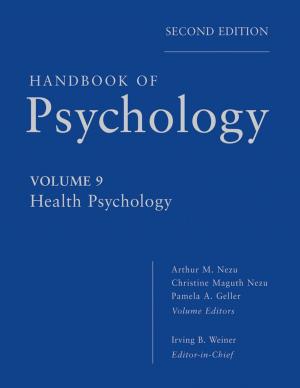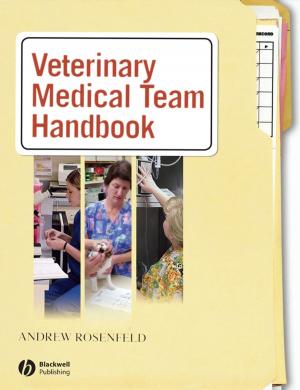Phytopharmacy
An Evidence-Based Guide to Herbal Medicinal Products
Nonfiction, Science & Nature, Science, Biological Sciences, Biotechnology| Author: | Sarah E. Edwards, Ines da Costa Rocha, Elizabeth M. Williamson, Michael Heinrich | ISBN: | 9781118543450 |
| Publisher: | Wiley | Publication: | February 17, 2015 |
| Imprint: | Wiley-Blackwell | Language: | English |
| Author: | Sarah E. Edwards, Ines da Costa Rocha, Elizabeth M. Williamson, Michael Heinrich |
| ISBN: | 9781118543450 |
| Publisher: | Wiley |
| Publication: | February 17, 2015 |
| Imprint: | Wiley-Blackwell |
| Language: | English |
Healthcare professionals, including doctors, pharmacists and nurses, are often confronted with patients who use over-the-counter (OTC) herbal medicinal products and food supplements. While taking responsibility for one’s own health and treatment options is encouraged, many patients use these products based on limited (and sometimes inaccurate) information from non-scientific sources, such as the popular press and internet. There is a clear need to offer balanced, well-informed advice to patients, yet a number of studies have shown that, generally, conventionally trained health practitioners consider their knowledge about herbal medicinal products and supplements to be weak.
Phytopharmacy fills this knowledge gap, and is intended for use by the busy pharmacist, nurse, or doctor, as well as the ‘expert patient’ and students of pharmacy and herbal medicine. It presents clear, practical and concise monographs on over a hundred popular herbal medicines and plant-based food supplements. Information provided in each monograph includes:
• Indications
• Summary and appraisal of clinical and pre-clinical evidence
• Potential interactions
• Contraindications
• Possible adverse effects
An overview of the current regulatory framework is also outlined, notably the EU Traditional Herbal Medicinal Products Directive. This stipulates that only licensed products or registered traditional herbal medicinal products (THRs), which have assured quality and safety, can now legally be sold OTC. Monographs are included of most of the major herbal ingredients found in THRs, and also some plant-based
food supplements, which while not strictly medicines, may also have the potential to exert a physiological effect.
Healthcare professionals, including doctors, pharmacists and nurses, are often confronted with patients who use over-the-counter (OTC) herbal medicinal products and food supplements. While taking responsibility for one’s own health and treatment options is encouraged, many patients use these products based on limited (and sometimes inaccurate) information from non-scientific sources, such as the popular press and internet. There is a clear need to offer balanced, well-informed advice to patients, yet a number of studies have shown that, generally, conventionally trained health practitioners consider their knowledge about herbal medicinal products and supplements to be weak.
Phytopharmacy fills this knowledge gap, and is intended for use by the busy pharmacist, nurse, or doctor, as well as the ‘expert patient’ and students of pharmacy and herbal medicine. It presents clear, practical and concise monographs on over a hundred popular herbal medicines and plant-based food supplements. Information provided in each monograph includes:
• Indications
• Summary and appraisal of clinical and pre-clinical evidence
• Potential interactions
• Contraindications
• Possible adverse effects
An overview of the current regulatory framework is also outlined, notably the EU Traditional Herbal Medicinal Products Directive. This stipulates that only licensed products or registered traditional herbal medicinal products (THRs), which have assured quality and safety, can now legally be sold OTC. Monographs are included of most of the major herbal ingredients found in THRs, and also some plant-based
food supplements, which while not strictly medicines, may also have the potential to exert a physiological effect.















